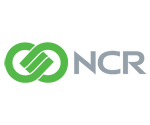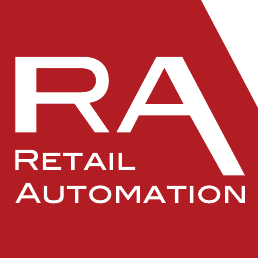 Monica Hachem, from the NCR solutions marketing team, and Jennie Johnson, from the NCR human factors engineering group -- did a Q&A on the evolving self-service marketplace and growth areas worth watching.
Monica Hachem, from the NCR solutions marketing team, and Jennie Johnson, from the NCR human factors engineering group -- did a Q&A on the evolving self-service marketplace and growth areas worth watching.
As self-service solutions evolve with the advent of new technologies, manufacturers are forced to adapt in order to keep up with customer demands and expectations. Tablets have introduced an unprecedented dynamic to the design and implementation of traditional kiosks and, according to some, have irrevocably changed the industry.
Last week two NCR experts -- Monica Hachem, from the NCR solutions marketing team, and Jennie Johnson, from the NCR human factors engineering group -- did a Q&A on the evolving self-service marketplace and growth areas worth watching.
Q: What do you feel tablets have done to impact the design of traditional kiosks?
A: Hachem-
From a design perspective, consumers and retailers are enamored with the look of the iPad. (Retailers) are focused on the aesthetics of it. We are responding with kiosks that are more complementary to their environment and that support branding. So I think overall that is a positive impact.
Q: Would you say from a business standpoint that you would be worried about the use of tablets in kiosks? If so, is there a plan to combat that in the design aspect?
A: Hachem-
The reality is a lot of retailers are using iPads in employee-facing devices, not necessarily consumer-facing devices. There is a time and place for everything. We really try to look at the user experience, and better understand what the (shopper) is trying to do and how we can use technology to make it faster, easier and more convenient for them to shop and also require them to have no prior experience (with a device). And in certain environments, like a jewelry counter, I think is a great place for an iPad implementation.
A real life example: A customer in Europe decided they wanted an iPad in their business environment and planned to have the associates carry the iPads around and help the customers right in the aisle. The customers really did not appreciate that type of 'shoulder to shoulder' interaction with the sales associates. So they pulled back from that and now are going to be working with us on a traditional kiosk application.
A: Johnson-
Even though a tablet may be cool and sexy, it really comes down to, 'What is my motivation to want to interact with this technology?' 'What is the benefit that it is going to provide me?' I think that is where the retailer needs to figure out what is the business benefit and the two have to match up in order for the technology implementation to be successful. So again, if that's a tablet, it depends on what benefits both will receive. Once you get that piece right, people will want to use it because it will be a better way of achieving the goal they had coming in to the store. Retailers have to get the use-case right.
Q: Do you have an opinion on other tablets? Does the iPad have a competitor when people are thinking about tablet kiosks?
A: Hachem-
The iPad tends to be the tablet that dominates the conversation, although we have had many retailers tell us when we have been at tradeshows that (they have concerns about) the iOS platform and don't know how to support it across their enterprise. There are a lot of Windows tablets that are becoming competitive as well so I think you will start seeing a push in that direction.
A: Johnson-
Last week I was meeting with a customer, and they were pretty determined at the beginning of the meeting that they wanted iPads for this one application where associates would be interacting with the customers. Once they realized that it wasn't so much the fact that they wanted an iPad, they just want a sleek looking tablet. They were already planning to wrap it in some ruggedized enclosure or holder so the associate could carry it around. At that point we would only be seeing the screen anyway and (shoppers) wouldn't know if it's an iPad or Android tablet. Ultimately if it's a tablet they will enclose, it doesn't really matter what the brand is underneath.
Q: What impact has mobile technology had on kiosks from a design standpoint?
A: Hachem-
We are seeing a stronger demand for kiosks globally. Not everyone has a smartphone and not everyone wants to use (one while shopping). (Some) retailers are using digital signage and kiosks to make a more engaging customer experience, to make it more fun and interactive as opposed to the experience you have on your phone. In the UK, some of the retailers have done some really engaging things with kiosks and digital signage to draw customers in and change the game a little bit. I think you will see different ways people use the mobile phone emerging; it will be more complementary to the kiosk as opposed to displacing it.
Q: What are some big growth areas for kiosks?
A: Hachem-
From a trend perspective, endless aisle has gotten a lot of global response; it is pretty hot right now. (Retailers) want to do it for multiple reasons. They are really focused on redefining the customer experience, so a lot of (retailers) are doing endless aisle in combination with digital signage; doing some really cool things to make you aware (of) their current products and drive you to the kiosk to get more information. Another reason they are doing it is they don't want you to leave that store (empty-handed). Customer loyalty is more important than ever before and (retailers) cannot afford to have you come in and not find your size and go to a competitor. Third, some of the store formats are downsizing. They realize it's just not cost effective to have these mega stores (if) they can't drive enough revenue per square foot. And in some cases we have retailers wanting to get into more urban areas and they know they have to scale back their stores, so endless aisle is a good product to enable them to get fulfillment right there in the store. Typically (the shopper) can ship to the store or home and many retailers offer free shipping if you shop from the kiosk. So it's a great customer convenience aspect.
Loyalty is another one. Grocery stores are really focusing on their loyalty or frequent shopper programs (using kiosks). They are doing a lot of things with coupon to card and trying to change the grocery experience, make it more convenient and drive loyalty enrollment.
Deli ordering is getting hot again and people are thinking (about ways) to implement deli (kiosks) and to up-sell, cross sell and drive revenue.
If you look around the globe you see a lot of government kiosks. A lot of them are smaller scale (projects) but government is taking up kiosks again and looking at how they can more effectively serve their populations and make things more convenient. And you see that in a lot of emerging markets as well.
 Q: Would you say the economy has slowed or hastened the growth of certain kiosk trends?
Q: Would you say the economy has slowed or hastened the growth of certain kiosk trends?
A: Hachem-
I think in certain kiosk trends it slowed it but now there is a return to it. I think what helped to slow it other than the economy was the launch of the iPad, (which) created a lot of market confusion. However, there seems to be a healthy resurgence in most of the kiosk market and expansion into new geographies, which is a very positive sign of recovery.
Q: Any new products in the pipeline?
A: Hachem-
We will be showing at CETW the SelfServ 85 Slimline kiosk.


 This site is produced by
This site is produced by